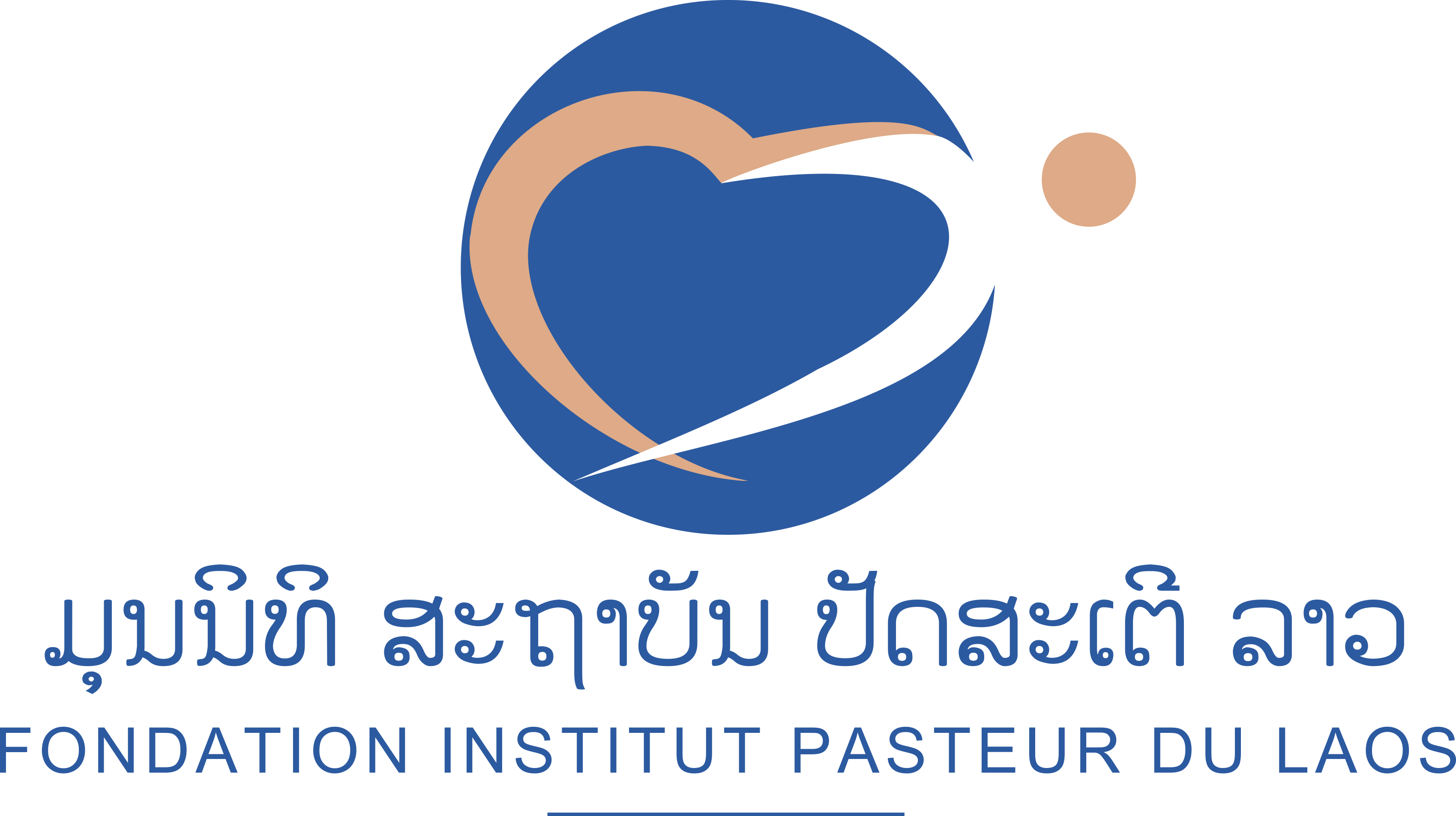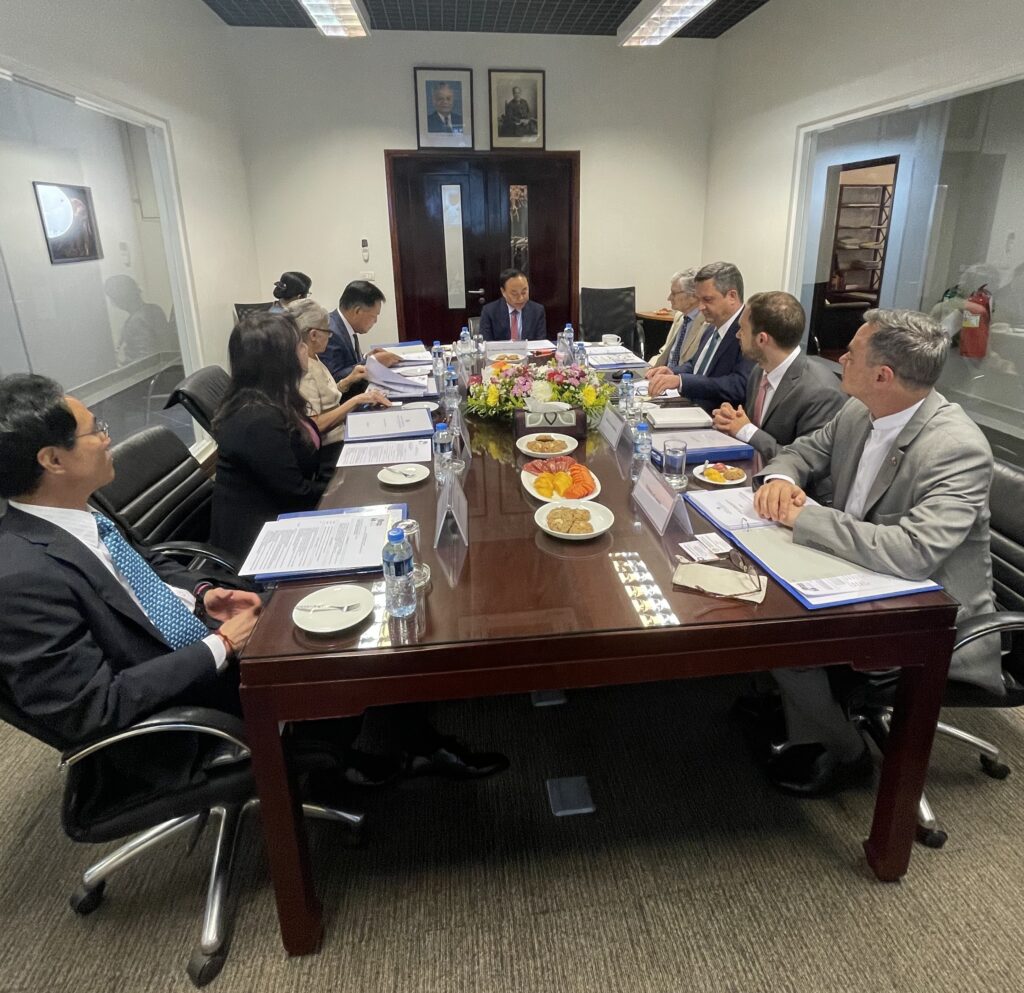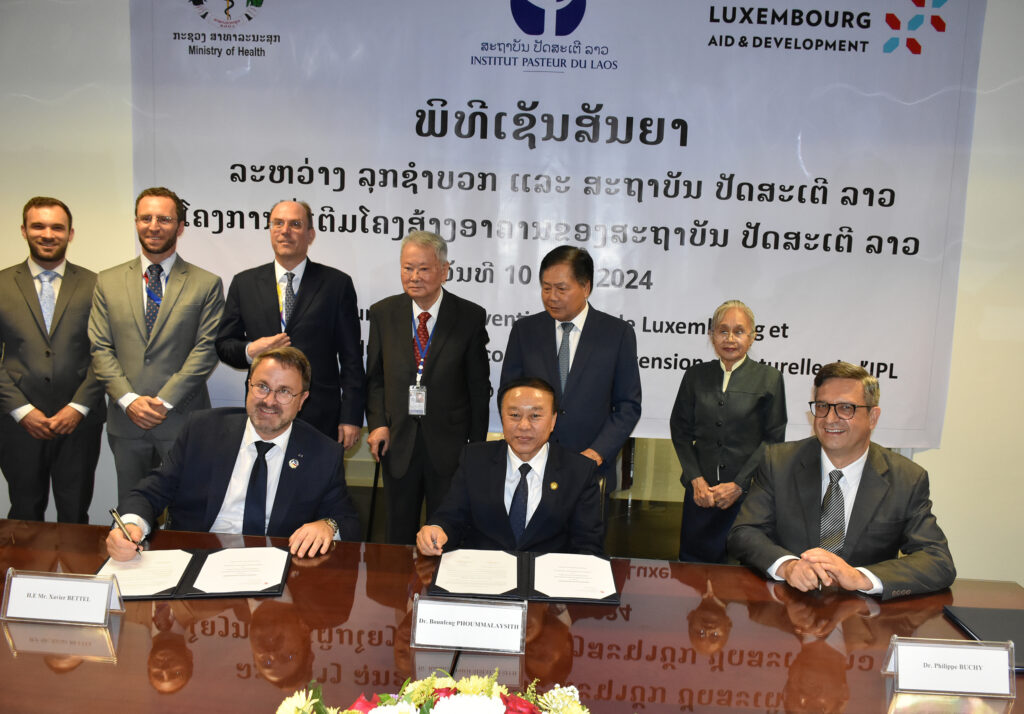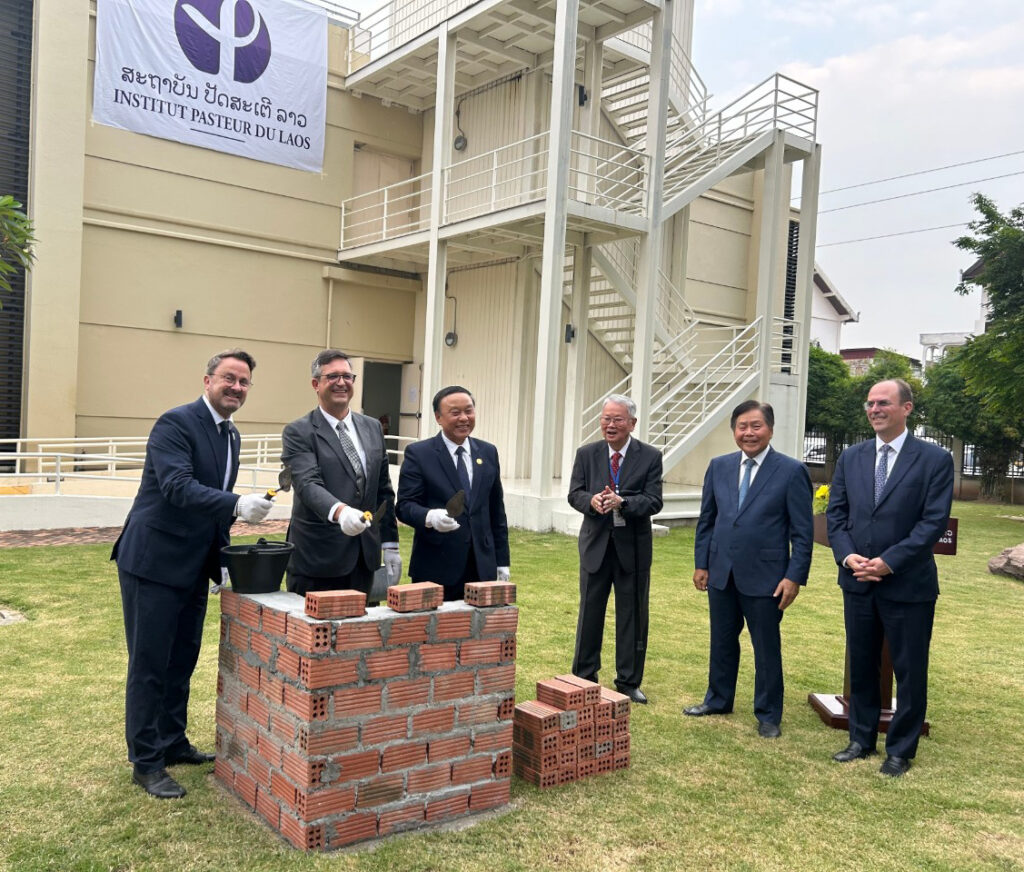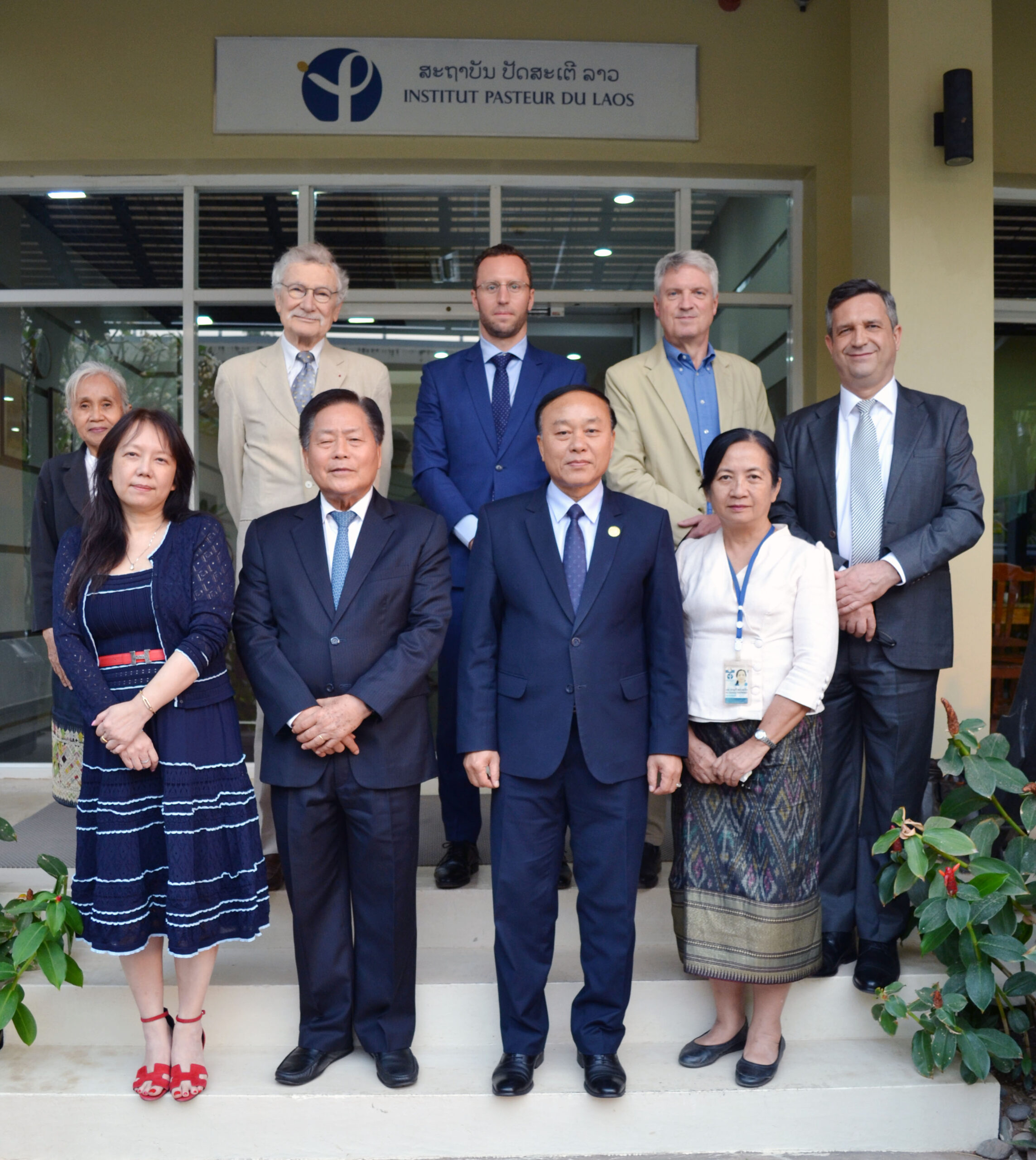General statement
For many years there was discussion within the Lao Ministry of Health about the possibility to establish an Institut Pasteur in Lao PDR in order to promote research and training and also to provide the Ministry of Health with evidenced-based results to help formulate National health policy. Lao PDR, like Vietnam and Cambodia and China, wanted it own modern research facility to investigate infectious diseases.
In 2003, with the emergence of SARS coronavirus and Avian Influenza H5N1 in Southeast Asia the former Minister of Health, Dr. Ponmek Dalaloy consulted with the Lao Government and made a formal request to Institut Pasteur in Paris. Dr. Ponmek Dalaloy stated that Lao PDR was ill equipped and ill-staffed to deal with emerging infectious disease and needed a modern research facility to diagnose and mitigate emerging and re-emerging vial infections. Dr. Ponmek Dalaloy said he “did not want Lao PDR to be a disseminator of emerging viruses”. Dr. Ponmek Dalaloy and the Lao government renewed their request to establish an Institut Pasteur in Laos (IPL) for several years. After a number of exploratory feasibility studies, Institut Pasteur in Paris agreed to assist the Lao government to establish the Institut Pasteur of Laos as a Lao national institute for research and training on infectious diseases (confer statutes of IP Laos) and on the 16 November 2007 the former Prime Minister, Bouasone Bouphavanh, signed a decree for the creation of Institut Pasteur of Laos.
A year after the Prime Minister’s signature the world economy plunged into the most severe economic recession since of the great depression of the 1930’s jeopardizing the newly promulgated Institut Pasteur of Laos. However, the team in charge of the fund raising and construction of the Institute, under the guidance of Dr. Ponmek Dalaloy, slowly but surely achieved their objective and the Institut Pasteur of Laos was inaugurated on the first day of the Chinese New Year, 23 January 2012.
The next phase was to establish and equip laboratories within the new institute and hire Lao researchers. During this phase it was decided by the Director of IP Laos and the Board of Director of IPL chaired by Dr. Eksavang Vongvichit, Minister of Health, to create so-called “joint-labs”, a novel paradigm, where countries with strong relations to Lao PDR (France, Luxembourg, Japan,…) are willing to support a specific joint-lab by providing a foreign head of lab who is an expert in a specific area of infectious disease research, support Laos scientific staff working in the lab, research costs, as well as contribute to the running costs and administrative support of the institute. Hence, 4 labs were created under this concept:
Lao-French lab for Arbovirology and Emerging viruses
Lao-French Lab for Medical Entomology
Lao-Luxembourg Lab for Vaccine preventable diseases
Lao-Japan Lab for Parasitology
The aim of each lab is to carry out research on specific infectious disease agents affecting the public health of the people of Lao PDR, such as Malaria, Dengue, Chikungunya, Measles, Mumps, Rubella, water and food-borne trematodes etc. in order to provide the Ministry of Health with evidence based results to contribute and direct National health policy. Furthermore and most importantly, the Lao Ministry of Health has given IPL the challenge to train and mentor a new generation of Lao doctors and scientists who in due time will replace the foreign experts. In addition, IPL has the responsibility to provide assistance to National Centers such as National Center for Laboratory and Epidemiology (NCLE) National Center for Malariology Parasitology and Medical Entomology (CMPE) and the National Center for Animal Health (NCAH) to help them improve their diagnostic capacity and participate in outbreak investigations.
Since opening in January 2012, the Institute has been already actively involved in the surveillance identification and genotyping Dengue and Chikungunya viruses, as well as an outbreak of Mumps. Furthermore, the IPL Parasitology team has refuted through evidence-based results that the claimed presence of Schistosomiasis (Schistosoma mekongi) in the tourist city of Vang Vieng (Vientiane Province) was not true. Allowing this city to regain its reputation as a major tourist site.
The staff of the Institut Pasteur of Laos, both national and foreign, are here to serve the Lao people though the study of infectious diseases and by training a new generation of researchers to understand infectious disease transmission and to mitigate these threats by informing the Ministry of Health so it can take the appropriate action.
Paul Brey
Director

